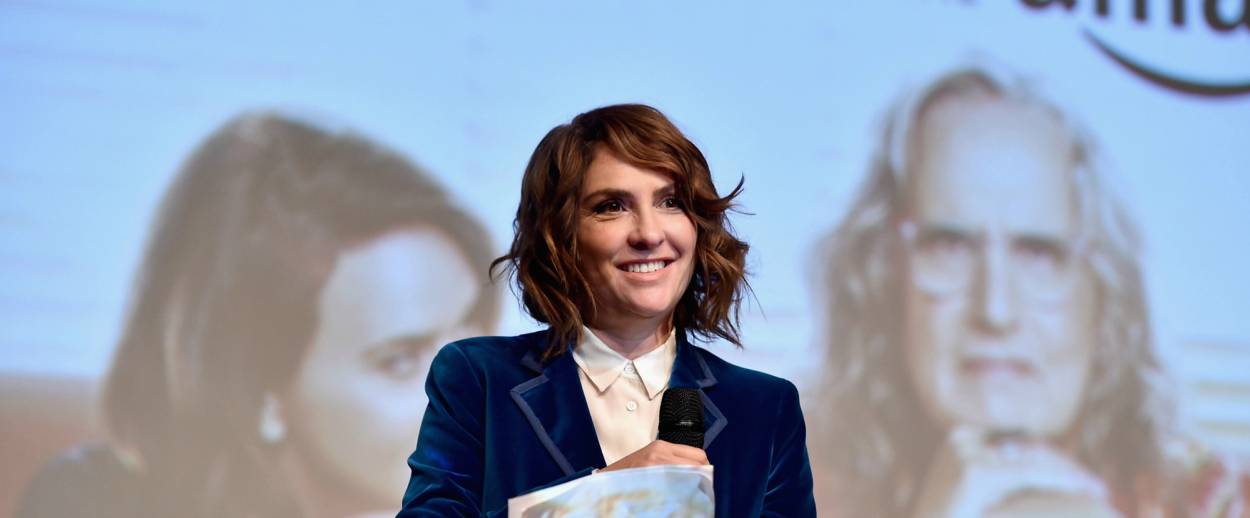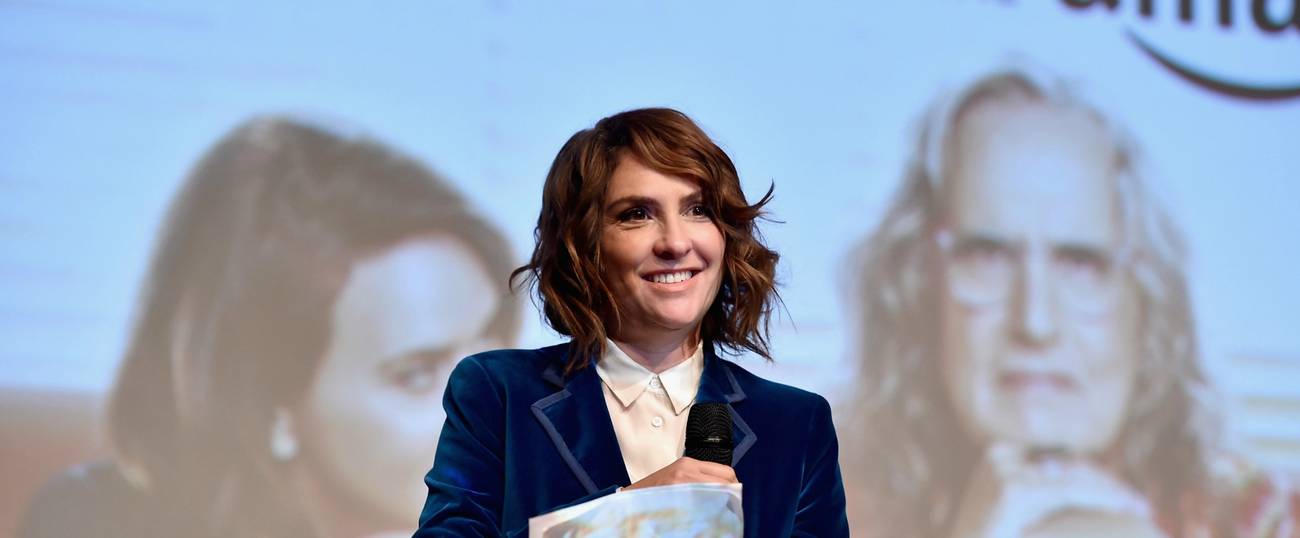In Jill Soloway We Trust
Season 2 of ‘Transparent’ kicked off this week, and its portrayal of the American Jewish identity continues to be spot-on




The second season of Transparent, Jill Soloway’s multi-generational dramedy about the triumphs and struggles of the Pfefferman family as they adapt to the reality of having a transgender parent, premiered this week on Amazon. (Well, technically the first episode of Transparent‘s second season was made public online: Just as we must adapt our pronouns for those who do not conform to arbitrary gender binaries, so too must we change our language to reflect our evolving television and media landscape. Such is the way of the 21st century.) Transparent has received countless plaudits—and several, very countable awards, including Jeffrey Tambor’s Emmy-winning performance as Maura, the trans parent)—for the way it has sensitively portrayed the experience of gender transition, not just for the people undergoing it, but for their families, too.
Important and unprecedented as this is, it’s far from the only ground Soloway has broken with her series. She’s also—far more stealthily—somehow managed to put the most recognizable, explicit, and familiar Jewish characters on American television since…well, since ever. Just look at the title of the season two opener, “Kina Hora,” a Yiddish phrase used to ward off the evil eye at times of great luck or joy. In fact, the title of the episode is so Jewish that even I had to look it up to make sure it meant what I thought it did. (I cannot remember the last time this happened during an episode of American television.)
The episode itself concerns the wedding of Sarah Pfefferman, the eldest of the brood, who, having divorced her husband Len, is marrying Tammy, the college girlfriend with whom she enjoyed an unexpected reunion in season one. It is, as you might imagine, a complicated affair. Sarah’s daughters demand to know where their father is—uninvited, as it turns out. Tammy’s two ex-wives are on hand to pose for pictures. The ceremony itself is to be performed by Rabbi Raquel (Kathryn Hahn), suddenly pregnant with Josh Pfefferman’s—Sarah’s brother (Marc Duplass)—baby.
And of course, there’s Shelley (Judith Light), the Pfefferman matriarch, who takes one look at Sarah and instantly confirms, unsolicited, that the make-up artist her daughter fears is making her eyebrows too dark? I repeat: Is making her eyebrows too dark. That brief exchange, to me, is the essence of Transparent’s Jewishness. Nearly alone among modern filmmakers and television writers, Soloway understands the way American Jews relate to their identity and how it informs the way they see the world. Soloway knows how Jews behave around other Jews. Unlike many other people I could name (and I won’t), Soloway knows that Jews don’t constantly sit around talking about their allergies, their lack of athletic prowess, their mothers who won’t get off their case about dating. Her Jews aren’t outsiders, forever adrift in a gentile world; they are insiders, not just in that world, but their own. Soloway’s Jews aren’t obsessed by their Jewishness—or allow it to define them completely, for humor or pathos—but they don’t never talk about it either.
It’s there, and the experience of it being there is the familiar, vaguely discomfiting feeling of being around people who know you too well, who instinctively understand things about you that you might prefer to remain undefined, and, well, unknown. People who are like your family, even when they aren’t. A curse that is really a blessing discomfiting and a blessing that is sometimes a curse. Kine hora.
Previous: ‘Transparent’ Is the Most Jewish TV Show in a While—and it’s Great
The Gospel of Jill Soloway
Rachel Shukert is the author of the memoirs Have You No Shame? and Everything Is Going To Be Great,and the novel Starstruck. She is the creator of the Netflix show The Baby-Sitters Club, and a writer on such series as GLOW and Supergirl. Her Twitter feed is @rachelshukert.